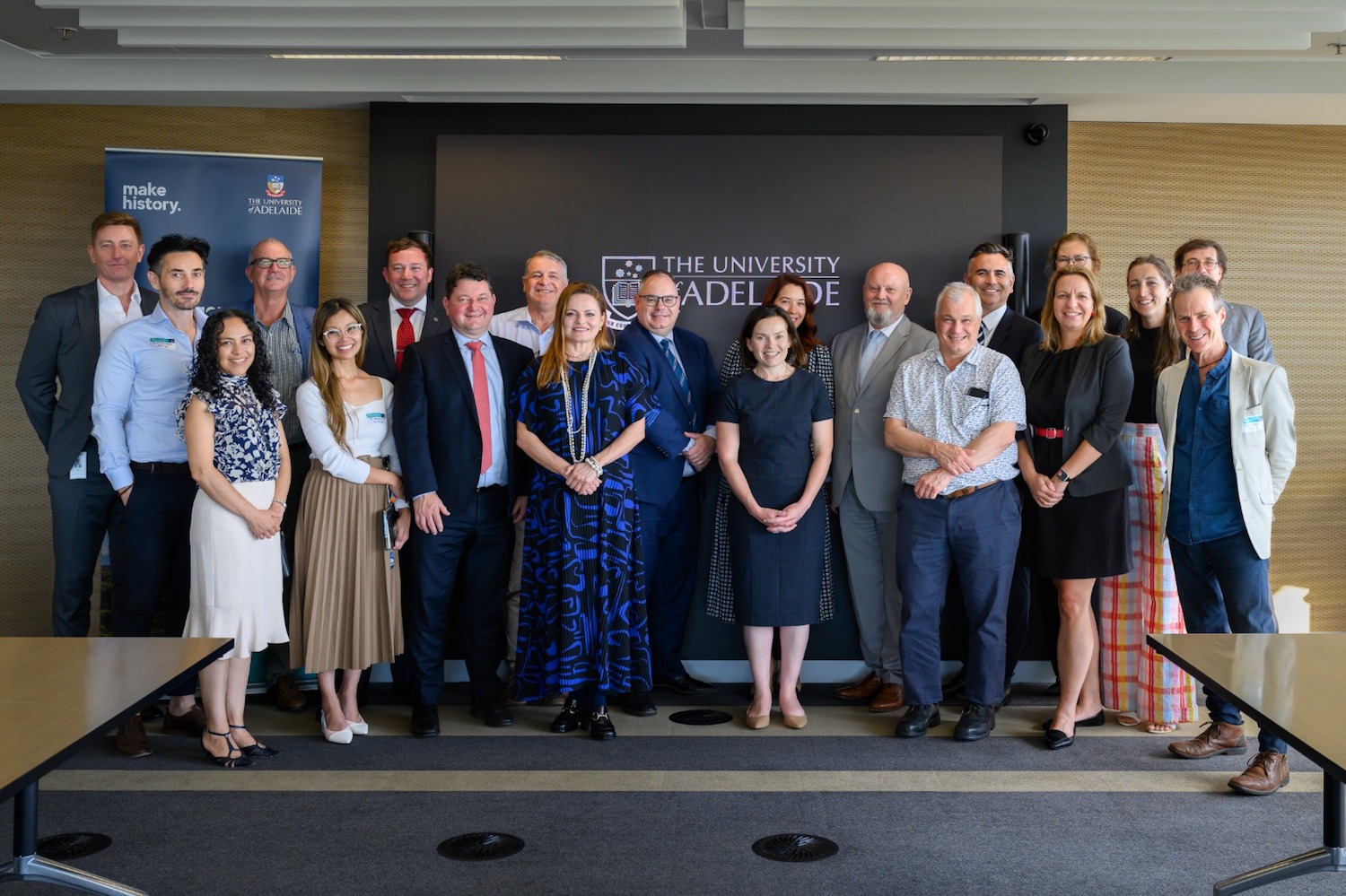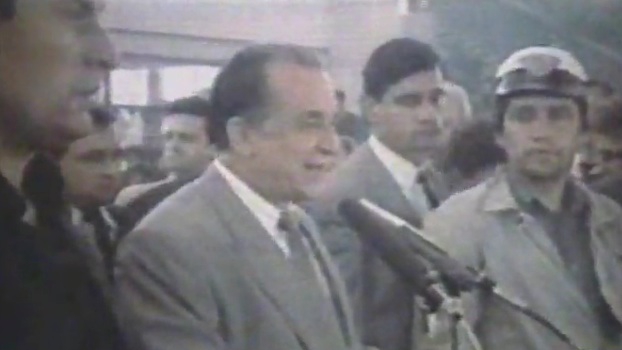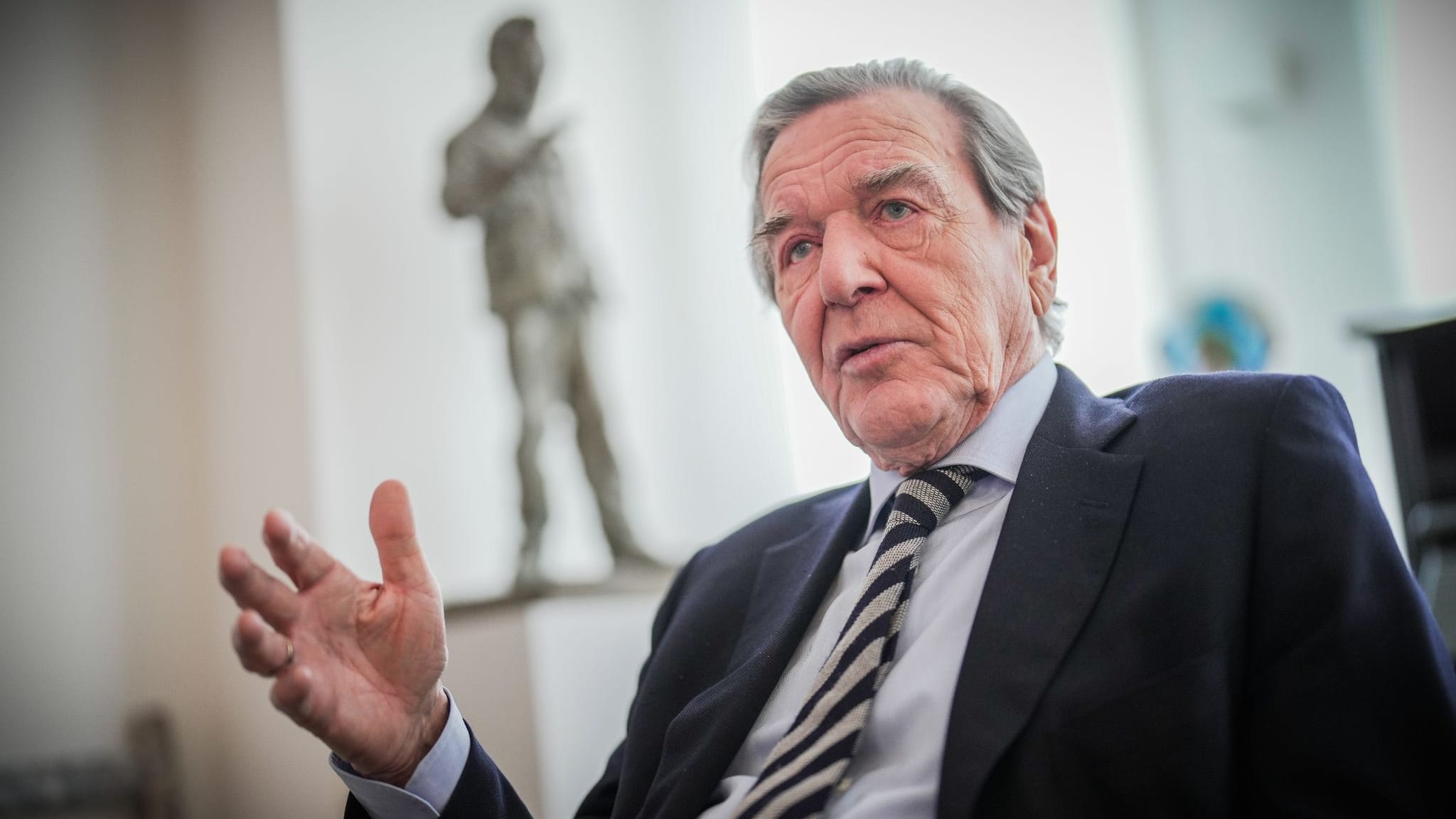On the 5th of February 2024, the Institute for Sustainability, Energy and Resources (ISER) team collaborated with His Excellency Mr. Gabriel Safta, the Ambassador of Romania to Australia, and Dr. Mireille Rădoi, Professor at the University of Economic Studies in Bucharest, to co-host the ‘International Energy Intelligence Roundtable’ at The University of Adelaide.
Dr. Jessica Gallagher, serving as the Deputy Vice-Chancellor of External Engagement at the University of Adelaide, warmly welcomed the distinguished guests from Romania. She also kindly opened the roundtable, where, together with Ambassador Safta, offered sincere greetings and introductory remarks.
The event facilitated a vibrant exchange of ideas among university researchers and stakeholders from Romania and South Australia with expertise in energy systems and intelligence. Discussions centered on future energy sources, associated waste management, collaborative initiatives for hydrogen production from solar energy, the synergy between civilian and defense sectors, and their implications for environmental and legal frameworks.
“Our world is more connected than ever, and the challenges we face are increasingly complex and global in nature. Our educational approach must mirror this reality. By embracing internationalization and interdisciplinary learning, we are not just educating students, we are preparing global citizens capable of thinking critically and creatively to solve the world’s most pressing issues.” says Dr. Mireille Rădoi, professor at the University of Economic Studies in Bucharest.
This forum was comprised of two intensely focused working sessions. The first session engaged senior academics, such as Grahan Nathan, Director of the Centre for Energy Technology at the University of Adelaide; Tony Hooker, Director of the Centre for Radiation Research, Education, and Innovation at the University of Adelaide; and Professor Melissa Nursey-Bray from the University of Adelaide. The second session attracted CEOs and CTOs from key industries, including Julian Kelly, CTO of ENTX; Dr. Dave Ormrod, Director of Information Warfare at DEFENCESA; and Kirsty Braybon from Braybon Advisory. These sessions underscored the event’s dedication to merging theoretical insights with practical applications in the field of energy intelligence. They were expertly introduced by Mihael Goodsite, Pro Vice-Chancellor (Energy Futures) at the University of Adelaide, facilitating a deep dive into the current and future landscapes of energy systems.
At these two events Dr. Rădoi made a presentation entitled “Romanian energy system –resilience and opportunities in a VUCA (Volatile, Uncertain, Complex, and Ambiguous) world”, offering insights into the Romanian energy system, drawing significant attention from industry and government representatives. A fervent advocate for the integration of the social dimension in energy intelligence, Dr. Rădoi emphasized the critical impact of data utilization on human security. Dr Rădoi discussed the importance of exploring energy intelligence with a special focus on the social dimension, where the way data is utilized can impact human security. She also presented the upcoming EnergIntell Conference 2024, hosted under the auspices of the Faculty of Business Administration in foreign languages and the Business University of Economic Studies.
“Integrating intelligence for a sustainable energy future is now a global imperative. I had the intuition to explore the nexus between these domains, and evidence shows that even on opposite sides of the world, there’s a need to identify these connections which are becoming increasingly relevant in a VUCA world.” said dr. Mireille Rădoi during the presentation.
Ambassador Safta contributed also to the dialogue with remarks on geopolitical aspects and international relations, enriching the roundtable’s discourse with a broader contextual understanding. Also, H.E. Mr. Gabriel Safta, Ambassador of Romania to Australia, highlighted the promising prospects for collaboration between Australian and Romanian universities, particularly noting South Australia’s eagerness for European partnerships.
The roundtable has successfully ignited interest in developing research initiatives focused on the techno-socio-economic aspects of energy planning and strategy, as well as in harnessing energy-related data for the welfare of consumers and society.
This forum not only showcased profound expertise and commitment to energy intelligence but also marked a significant step towards international cooperation in addressing global energy challenges.
“It was an exceptional day marked by Romania’s exemplary leadership in the energy transition. The visionary contributions of Professor Radoi, especially in integrating energy with intelligence, were truly remarkable. I am grateful for the opportunity to have been part of such an insightful discussion and am eager to foster collaborative efforts moving forward.” – Michael Goodsite, Pro Vice-Chancellor (Energy Futures) at the University of Adelaide
—
Master of Business Intelligence (MBI) is a Master’s program developed by the Faculty of Business Administration in foreign languages (FABIZ), endorsed by the Bucharest University of Economic Studies and the “Mihai Viteazul” National Intelligence Academy where students combines analytical and professional skills to become the type of professional who questions assumptions and makes data-driven decisions.
The 2nd EnergIntell is an essential gathering for professionals and academics seeking to understand and address the intricate dynamics of energy security in an increasingly uncertain world. The event promises to be a platform for groundbreaking discussions, innovative solutions, and forging new partnerships in the face of global challenges. The conference, titled “Energy and Security Resilience: Business Intelligence in Times of Conflict,” brings together a diverse array of experts, scholars, and industry leaders to explore how conflicts impact energy security and how business intelligence tools can be leveraged for resilience and strategic decision-making.
*This is a Press release.




